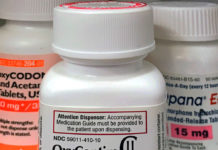return the balance. Any mental health disorders that were not diagnosed or treated may surface; this shows how pivotal extended dual diagnosis mental health treatment is. It’s also possible for this emotional shift to result in relapse.
“The way [the brain] works is called damped system,” he said. “The brain responds slowly. When you take the drug away, the brain recognizes it isn’t there anymore. The longer you take the drug the longer it will take to go back to normal.”
During the fragile mental shift, cravings can be triggered by discomfort and mental instability. To avoid relapse, those going through post-acute withdrawal need to wait-out the craving as they pass with time. It is also helpful for individuals with prolonged withdrawal to talk about their symptoms and tell people close to them that they have the urge to use drugs again. Taking protracted withdrawal one day at a time is as crucial as taking the initial steps during treatment at an addiction treatment center.
It’s paramount to avoid lying, glamorizing past drug use, and dwelling on your cravings. When someone is feeling down, it’s important to remember that this is only temporary, the pain will pass, the cravings will go away, and a fresh, rewarding life will be waiting.















